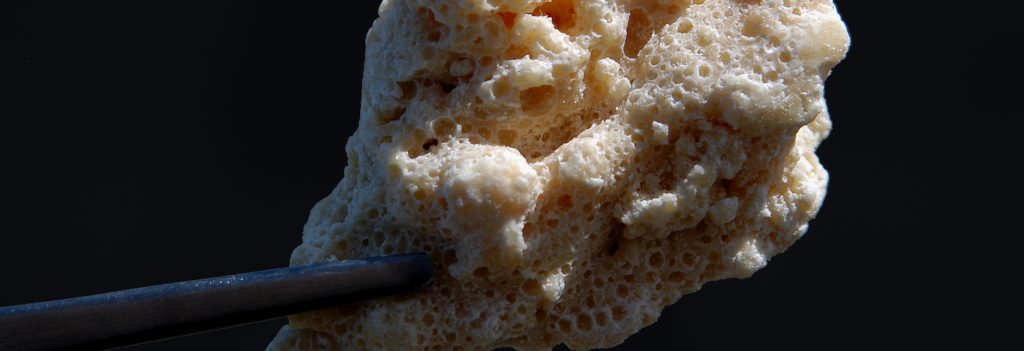
Cocaine Addiction Treatment
Understanding Cocaine Addiction and Abuse
Table of Contents
Cocaine Rehab In Arizona
Cocaine is a stimulant commonly used in social settings to help people feel more confident, alert and outgoing. Despite an often casual attitude toward cocaine use that downplays its harmful effects, it is a dangerous and mind-altering substance that has a profound impact on the brain and body. Even recreational use can quickly lead to addiction and dependence.
At Emerald Isle Health & Recovery, we’ve seen the damage that cocaine addiction can do to individuals and their families. If you or a loved one is struggling with cocaine use, we provide holistic and evidence-based treatment options that can help promote long-term sobriety. Our goal is to provide hope and support for those looking to break free from the grips of cocaine addiction and help them build a strong foundation for a healthier, happier lifestyle.
What is Cocaine?
Cocaine is a potent drug derived from the coca plant known for its stimulating effects. Its origins can be traced back to South America, where indigenous people chewed coca leaves to increase their energy levels. However, it wasn’t until the 19th century that cocaine was identified as the active ingredient and isolated by the German chemist Albert Niemann.
Cocaine commonly appears as a white powder. It is most often snorted, but it can also be dissolved and injected or converted into crack cocaine for smoking. Cocaine’s appeal lies in its ability to produce an intense, short-lived high that boosts alertness and sociability.
Once sold as a cure-all and hailed as a “wonder drug” by doctors, cocaine’s highly addictive nature and adverse side effects have made it a controlled substance worldwide. Although the dangers of cocaine are often downplayed, even casual or recreational use can quickly lead to addiction, negatively affecting an individual’s mental, emotional and physical health.
Immediate Placement in Cocaine Rehab
HOW DO COCAINE AND CRACK COCAINE DIFFER?
Cocaine and crack cocaine are almost chemically identical and share many similarities, but there are also key differences between the two. Cocaine occurs as a white powder that is typically snorted or injected, while crack cocaine has been converted into a rock-like substance prior to use. This allows it to be smoked, leading to a short but intense high.
Compared to snorting powdered cocaine, evidence shows that smoking or injecting the drug increases its potential for addiction due to the immediacy, duration and magnitude of its effects. However, cocaine use in any form can be highly destructive and wreak havoc on an individual’s life, negatively affecting their health, relationships, finances and more.
COCAINE STATISTICS IN ARIZONA & BEYOND
Cocaine is one of the most popular drugs in the United States. According to the National Institute on Drug Abuse (NIDA), 4.8 million people aged 12 or older reported using cocaine at least once in the past year, while about 1.4 million struggle with cocaine use disorder. On a larger scale, about 39 million people have used cocaine at some point in their lives.
Cocaine use is especially prevalent in certain states, including New Hampshire, Colorado and Arizona. Using city-specific data, a study by American Addiction Centers found that Phoenix, Arizona, has the highest rates of cocaine use in the country, with over 23% of residents having tried the drug at least once. This is followed closely by Mesa and Tucson, Arizona.
If you’re struggling with cocaine use, these statistics show that you’re not alone. Cocaine’s prevalence underscores the need for effective treatment options that can help individuals break free from the cycle of addiction. At Emerald Isle, we understand the challenges you face and are here to provide the personalized support you need to achieve lasting recovery.

WHAT ARE THE EFFECTS OF COCAINE USE?
Cocaine hijacks the brain’s reward system and floods it with dopamine, the “feel-good” neurotransmitter. This leads to an initial rush of euphoria, but prolonged use can have devastating effects on the mind and body. Over time, cocaine use negatively affects almost every major organ, causing concerns like heart problems, anxiety, mood swings and more.
PHYSICAL EFFECTS OF COCAINE USE
- Elevated heart rate
- High blood pressure
- Increased risk of heart attack
- Cardiovascular damage
- Nasal damage
- Respiratory problems
- Decreased appetite
- Potential overdose
- Muscle twitches and tremors
- Gastrointestinal issues
MENTAL EFFECTS OF COCAINE USE
- Heightened alertness
- Decreased need for food or sleep
- Feeling more outgoing
- Anxiety and depression
- Paranoia
- Impaired judgment
- Hallucinations and delusions
- Restlessness
- Increased irritability
- Mood swings
- Aggressive behavior
The effects of cocaine use are often exacerbated by “binge and crash” patterns of use. This occurs when an individual takes repeated doses of the drug over several hours or days to avoid the comedown. As the effects wear off, exhaustion, irritability and depression set in. Due to its short-acting high, cocaine is more likely than other drugs to be used this way.
SIGNS OF COCAINE ADDICTION
At first, cocaine might seem like a party drug that boosts one’s confidence and provides an escape from reality, but regular use can cause significant damage. Many individuals find themselves chasing that initial high and take the drug more frequently and in larger amounts, increasing the potential for adverse health effects. If you think that you or a loved one has developed a problem with cocaine, some common signs of addiction include:
- Loss of control over cocaine use
- Financial or legal troubles
- Increased tolerance; needing more to achieve the same high
- Unexplained weight loss
- Nosebleeds and nasal damage from frequent use
- Using the drug in increasingly risky ways (IV or smoking)
- Intense cocaine cravings
- Abnormal sleep patterns
- Loss of interest in hobbies and other normal activities
- Inability to manage daily responsibilities
Learning to recognize these signs is a key step to getting help as soon as possible. Cocaine use can quickly develop into addiction due to the drug’s short duration and rapid onset of effects. Fortunately, recovery is possible with the right help — proper treatment can help break the harmful cycle of cocaine addiction and prevent long-term damage from occurring.
WHAT DOES A COCAINE OVERDOSE LOOK LIKE?
One of the biggest problems with street drugs like cocaine is that you can never be certain of their origin or purity. This makes it difficult to gauge how much is being taken, increasing the risk of overdose. Although less common than overdosing on opioids, a cocaine overdose is a potentially life-threatening situation that includes symptoms such as rapid or irregular heartbeat, dangerously high blood pressure, profuse sweating and muscle tremors. Individuals may also experience confusion, paranoia, chest pain and seizures.
In the event of a suspected cocaine overdose, it is essential to seek help immediately. Call emergency services without delay, as timely intervention can be life-saving. While waiting, stay with the affected person and keep them calm. Overdosing on cocaine is a medical emergency, but with swift action and appropriate care, lasting harm can be averted.
Free Insurance Verification for Cocaine Rehab
THE IMPORTANCE OF EVIDENCE-BASED & HOLISTIC TREATMENT
Recovering from cocaine addiction is not a one-size-fits-all journey. During treatment, it’s essential to address the full scope of each individual’s needs and address the underlying mental, social and behavioral factors that contribute to substance use. Evidence-based treatments such as cognitive behavioral therapy (CBT) have shown great promise in helping individuals identify triggers, develop coping strategies and regain control of their lives.
But it doesn’t stop there. Holistic treatment recognizes the importance of addressing co-occurring disorders. Cocaine addiction and mental health concerns like depression or anxiety are often linked, so a comprehensive, holistic approach that treats both conditions simultaneously is crucial for helping individuals adopt a healthier lifestyle and build a strong foundation for lasting recovery. Since cocaine is often used alongside other drugs or alcohol to increase the high, a holistic approach can also treat polysubstance addictions.
COCAINE ADDICTION TREATMENT AT EMERALD ISLE
At Emerald Isle Health & Recovery, we craft personalized treatment plans to give each individual the best chance at sustainable recovery. We know how challenging it can be to overcome cocaine addiction, but our experienced team uses a variety of holistic, evidence-based methods to promote a healthier lifestyle free from substance use.
Our admissions process starts with a detailed psychiatric evaluation, which helps us better understand your mental health needs and substance use history. Then, we recommend the best level of care for your specific situation. We offer a variety of comprehensive treatment programs and a full continuum of care, from residential rehab to aftercare support. We also have more flexible options such as a partial hospitalization program (PHP), intensive outpatient program (IOP) and standard outpatient rehab that can serve as your primary treatment or provide ongoing support and structure as you progress in your recovery.
Our goal is to ensure that each individual receives a care plan that evolves with them as their needs change. Research has shown the importance of long-term treatment when it comes to overcoming addiction, and we are committed to being there for you every step of the way.

THERAPIES USED TO ADDRESS COCAINE ADDICTION
Substance use disorders are complex, chronic diseases that require a personalized approach tailored to each individual’s needs. At Emerald Isle Health & Recovery, we use a blend of holistic and evidence-based therapies to help our clients build a healthier, sober lifestyle. Some of the proven techniques that we use to treat cocaine addiction include:
MOTIVATIONAL INTERVIEWING
Motivational interviewing is often the first therapy stage for people starting to recover from addiction. Its primary goal is to get the patient to recognize how their addiction is causing strain in their relationships and preventing them from achieving their goals. It aims to inspire hope and motivation in patients who may otherwise feel hopeless about getting better.
CONTINGENCY MANAGEMENT
Stimulants like cocaine are addictive because they take over the brain’s reward pathways, but contingency management can help restore normal functioning by reinforcing desirable actions. Under this technique, clients in rehab get rewarded for meeting attendance, medication compliance and drug toxicity, which helps in overcoming cocaine addiction.
COMMUNITY REINFORCEMENT
Through the cultivation of a reassuring social network, community reinforcement highlights the patient’s demonstrated pro-health behaviors identified through contingency management. Community reinforcement could include strategies such as counseling for relationships, training for new jobs, or fun recreational activities.
COGNITIVE BEHAVIORAL THERAPY (CBT)
CBT is a proven therapeutic technique backed by years of research. It helps patients identify and avoid situations that could jeopardize their cocaine addiction recovery and replace negative thought patterns with more constructive ones. When it comes to mental health, people who are experiencing co-occurring disorders also benefit significantly from CBT.
OTHER TECHNIQUES
At Emerald Isle, we also incorporate 12-step meetings, family therapy, meditation, exercise, medication monitoring and more in our treatment plans to help individuals heal mentally and physically from cocaine use. This holistic approach helps you adopt a substance-free lifestyle and equips you with the tools, techniques and strategies you need to stay sober.
Learn More About our Cocaine Rehab Program
REACH OUT FOR HELP TODAY
If you or someone you love is struggling with cocaine addiction, don’t hesitate to reach out for help. The experienced team of doctors, nurses and other addiction professionals at Emerald Isle Health & Recovery are here to provide the necessary care, support and guidance for achieving lasting recovery. Our commitment to total wellness helps ensure that each individual is well-equipped to overcome their substance use and live a healthy, happy life.
To get started, call our admissions coordinators at 855-613-0620 or click here to complete our online contact form. Our addiction hotline is available 24/7, including weekends and holidays.